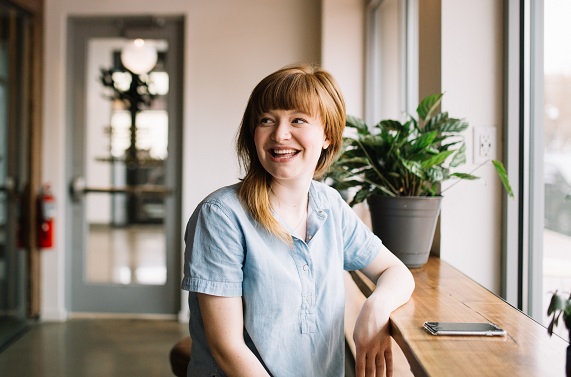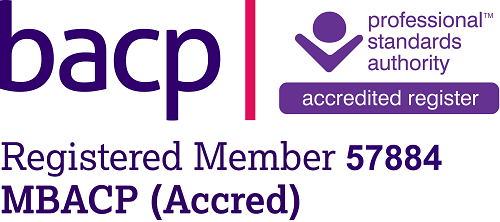Counselling
Counselling to help you deal with what’s difficult
And get back to being you.
I work one-to-one with clients to:-
- Overcome stress and anxiety.
- Lift depression.
- Raise confidence and self-esteem.
- Resolve relationship problems.
- Carry on after a bereavement or loss.
- Deal with addictions.
- Rebuild life after trauma or abuse.
- Alleviate stress while studying.
“Kirsty made observations and had thoughts I hadn’t even considered. This gave me a different outlook on the situation. You might think that keeping it all inside is the best way to go but there’s no harm in trying to talk about it, you’ll feel a sense of relief.”
Female client, Student, Cardiff
COUNSELLING
What you’ll get from Counselling

“I was apprehensive but I experienced an authentic, non judging relationship and was able to express emotion without being ‘distracted’ away from it. Having someone challenge some of my assumptions and beliefs really helped“
Vicki, Cardiff
- Someone to turn to, so you’re not dealing with everything alone.
- Feeling listened to and accepted for who you are (in guaranteed confidence).
- An understanding of how your thoughts, feelings and actions are connected.
- New perspectives to free you up.
- Clarity on your priorities – the things that matter to you.
- Proven techniques to engage with your emotions in a way that serves you.
- Uncovering strengths and strategies to help you deal with what’s difficult.
- Flexible appointments to fit around you (including online counselling).
COUNSELLING
How you’ll feel
This is just some of the ways clients have felt after counselling:
- Greater confidence and self esteem.
- Optimistic for the future.
- Calmer and more able to relax, switch off at the end of the day and sleep better.
- Back in control – happier, calmer and with peace of mind.
- More energy for the things you want to do in life.
- More satisfied with your life and closer to the people around you.
- Increased resilience to deal with the tough things that happen.
- Better awareness and understanding of yourself.

WHAT COUNSELLING IS
One-to-one sessions where you talk about what’s on your mind.
You set the agenda without worrying about offending or troubling me. Talking to someone who isn’t personally involved can actually help you speak more freely than with family or friends. And if you’re not clear on what the problem is we can use the session to help you find out.
A place where you can focus.
Counselling is very different to a conversation where two or more people give their opinions and share experiences. In a conversation, the subject can shift rapidly, starting off on one thing and ending on another. In counselling the focus is on what you want to talk about and clients find this allows them to go deeper than they normally would.
If you find this intimidating – please don’t worry. See ‘I find talking about myself really difficult’ in the Q&A section below.
A way to understand and handle your thoughts, emotions and the things you do.
In a session we’ll look at what’s troubling you in detail – I might ask you to recall the thoughts, feelings and how you responded to certain situations. We’ll look for patterns and how events are connected. We may look at times this happened in the past for greater understanding of the present – but we’ll always link it back to where you are now so we’re not ‘dredging up’ past events with no purpose.
A place where you’re in control
You get to choose the frequency of sessions, what we talk about and how quickly (or slowly) we go. I’ll always check in with you during the sessions to see how this is feeling and we’ll always go at your pace. I practice from a position of safety – there’s no point rushing the work if it leaves you feeling exhausted and overwhelmed. Similarly, if you feel it isn’t moving fast enough we can look at what might be blocking you and ways to move forward.
WHAT COUNSELLING ISN’T
A
question and answer session.
When you go to appointments with your doctor there’s a standard ‘check-list’
format. Counselling isn’t like that because there’s no ‘check list’ to follow.
In the first session I’m likely to ask you to say a bit about your current
situation and what’s bringing you to counselling now. I might ask some
open-ended questions but I’ll mostly be giving you space to think and helping
you talk. Don’t worry – you can’t get this wrong because there are no wrong
answers.
A place where you’ll get no feedback.
Some forms of counselling (and some counsellors) give minimal responses and this works for clients who simply want a space to think. My counselling style is different. In the sessions where you need to ‘off load’ or think things over I’ll give you plenty of space but my approach is active and if I see you struggling with not knowing what to say, or feeling stuck or confused, I’ll check out with you how I can help. Whether that’s through open-ended questions, linking back our conversation with previous things we’ve talked about or bringing in a bit of counselling theory. I find this can progress the work and gives you fresh perspectives to consider.
Being told what to do.
Counselling is team work – that means you and I working together to come up with the best solution for you. I might know about counselling and what’s worked for other client’s but you’re the expert on you. The best counsellor in the world can’t make your decisions for you. I’ll help you in the decision making process if needed but you’re one the one who ultimately chooses what’s right for you. This approach can be difficult in the beginning but pays off long-term as it helps you improve your decision making skills so when you leave counselling you’ll be better set (and more confident) to deal with choices in the future.
If you’d like more info on my counselling style click here.
IS COUNSELLING FOR ME?
Here you’ll find a few situations where counselling is (and isn’t) the best option

Counselling isn’t for you if:-
- You’re looking for a quick easy ‘fix’ – some clients may only need one session but in that session we could be talking about some difficult stuff and for longer-term, or more complicated problems, effort is essential. Unfortunately, counselling isn’t a magic wand.
- You can’t bear the thought of talking to someone about your problem. If that’s the case, some form of self-help might be more suited to you right now.
- You’re not in a place where you can commit to counselling at the moment – most clients find they need some degree of stability in their lives (as well as the time) for counselling to be effective.
Counselling’s for you if:-
- You’re 16 and over and have a problem or concern you want to talk about.
- You’re unhappy with something and you’re feeling ‘there must be more to life than this’. And you’re willing to look at what that might be.
- You’re ready to put yourself first and invest in you. Not sure? Read “I’m not sure about investing in myself” in the Q&A’s below.
- You understand that talking about things might be difficult but you’re willing to bear the short-term discomfort for long term gain.
- You have thoughts or behaviours you want to change and are prepared to invest the time and effort into changing them.
Q&A’S
Not sure about something? Check out these commonly asked questions.
I’m not sure about investing in myself – am I being selfish?
No! Your life is worth the investment as much as anybody else’s. And we can’t help others until we help ourselves. Think of those oxygen masks on a plane – you have to put yours on first. I worried about this too when I was a client and I found the more ‘work’ I did on myself and my own needs, the greater my capacity to be there for others – without feeling burnt out and drained. Maybe it’s time you did something just for you.
What if talking about my problems makes them worse ?
I understand how hard it can be to talk about things. But if you’ve tried the ‘I’ll let it sort itself out’ approach and you’re still struggling? Then that approach isn’t working. I can help you deal with the emotions that come up and share techniques you can use outside counselling. And as a previous client said: “Change is possible. If you want to live a happy life then even when it gets tough it’s worth the struggle”.
Can I trust you?
Not immediately. You can trust that I’m a qualified and experienced counsellor but trust takes time. I wouldn’t recommend trusting anyone without knowing them. And if you’re feeling mistrustful that’s fine, we’ll work at your pace and allow plenty of time to get to know each other. Then you can decide how trustworthy I am.
I find talking about myself really difficult.
This can be hard in counselling but doesn’t have to be a barrier to our work. I’m trained and experienced in helping people talk. Often we don’t want to speak for fear of being judged or feeling guilty or ashamed. If this is worrying you I’ll do everything I can to help ease those feelings and show you I’m a real person too.
Shouldn’t I just get on with it – everyone else does?
Sometimes the ‘just getting on with it’ approach works. But this is an old-style way of dealing with problems and now we have a much better understanding of ourselves and what we need. And just getting on with it can mean problems mount up. Today you have a choice – maybe it’s time to be brave and do something different.
Does it mean there’s something wrong with me?
No. It means there’s something right with you because you know something’s wrong and you want to do something about it. Unfortunately, counselling still has a stigma attached but this is changing and rightly so. Deciding to go for counselling is a bold course of action and can be empowering.
What will my friends and family think?
I respect the right to privacy and encourage my clients to protect their privacy too. If you want to tell family and friends you’re in counselling to gain their support if could also stop them worrying. It might reveal you have a problem but also shows you’re dealing with it. Often our family and friends just want to know we’re okay and might be releaved that you’re seeking help.
What if I become dependent on counselling?
My aim is always to help you work towards being ‘your own counsellor’. Within that process there might be times you rely on my support – this just makes you human. It can be difficult to accept help (often if we’re always helping others) but that can put us out of balance. My counselling is designed to empower you – yes you may be going through a hard time but I’ll help you strengthen the ‘adult’ part of you that gets weakened in times of stress.
What if nothing changes?
Most people find going to counselling gives them something – a different perspective, release from difficult feelings or new ways of doing things. However there’s no guarantee it will work for you. If you’re concerned about this I offer a free 30 minute consultation session to can help you make up your mind. See my Contact page for more information.

Photo Credit: Photo by Paul Weaver on Unsplash | Photo by Richard Jaimes on Unsplash | Image by Mark Mook from Pixabay | Photo by Priscilla Du Preez on Unsplash | Photo by Brooke Cagle on Unsplash

